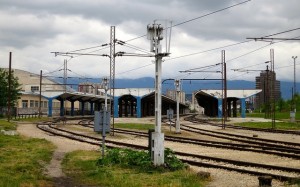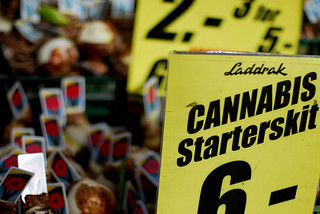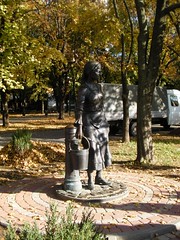Fiona Krakenbürger knows her home town of Berlin under normal circumstances and now knows it during Covid19 times. Whats the difference? Today on the podcast we get into Berlin over the past weeks as well as uncovering what has been going on in DC over the past months (for her). Along the way we talk about Planet Money, sourdough, serious concerns for at-risk groups, hackerspaces, ultimate frisbee, and home office politics. Very pleased to have this podcast with Fiona to share with all of you. Have a listen!
Tag Archives: europe
Kurt Bassuener: Bosnia 101

Kurt Bassuener has been working on the issue of Bosnia for over 15 years and in that time has figured out what many people inside and outside the country have not – what is wrong and what can be done about it. That is, in fact, one of the key lessons to take home from this Bosnia 101 conversation; there is hope, there are things that can be done, if specific actors would be willing to change the status quo.
“If the external actors would recognize in their own interests, that with very little change in their approach… they could actually end up with a durable solution.”At a time where Bosnia seems plagued by corruption and stagnation, Kurt sees things as politically and economically going backwards. Creating a scenario that will do further harm to people inside the country, in the region, and across Europe.
“People saw the social fabric unravel once, and it was bad enough the first time, they don’t want to go there again.”What is different about Bosnia-Herzegovina in 2013 compared to 1995? Who makes up this complex nation today and what do they think of the traumatic past, the frustrating present and dour future?
“It took a lot of engineering to destroy this country, it was not something that just happened one day… There was a lot of effort to create a sense of inevitability and a sense of fear.”On this edition of CitizenReporter we hear from policy analyst and veteran Balkan observer Kurt Bassuener of the Democratization Policy Council. He is also the co-author of “House of Cards”, the DPC’s latest Bosnia policy paper.
Myths of Cannabis Prohibition in the Netherlands
 Over the past years alot of half-assed information has been spread by a combination of poor journalism and rumors via social media, which states that foreigners can no longer buy cannabis in coffeeshops in Amsterdam. Though this is untrue, word about an experimental policy in the south of the Netherlands has travelled. Many, both outside and inside the country, believe its only a matter of time before prohibition becomes a national reality. But the truth is, that is still only one of many possible futures for the Netherlands. Beyond that, research and reality shows the experiment is a failure, yet politicians remain locked into their white-washing campaign to clean the image of the nation. My returning guest is Frederik Pollak, a researcher and policy expert who has been following the discussion for over a decade, and has alot to say about what is really going on in the Netherlands and around the world.
Over the past years alot of half-assed information has been spread by a combination of poor journalism and rumors via social media, which states that foreigners can no longer buy cannabis in coffeeshops in Amsterdam. Though this is untrue, word about an experimental policy in the south of the Netherlands has travelled. Many, both outside and inside the country, believe its only a matter of time before prohibition becomes a national reality. But the truth is, that is still only one of many possible futures for the Netherlands. Beyond that, research and reality shows the experiment is a failure, yet politicians remain locked into their white-washing campaign to clean the image of the nation. My returning guest is Frederik Pollak, a researcher and policy expert who has been following the discussion for over a decade, and has alot to say about what is really going on in the Netherlands and around the world.
ctrp319 Mass Student Revolt in Austria
Recently it was the University of Fine Arts in Vienna that tried to make this move. But unlike many Universities where students might have disagreed, protested, and eventually gave up the fight – students in Austria have taken matters into their own hands; They have occupied their school. Highy organized, their occupation is now more than 24 days old and has spread beyond the borders of Autria into Germany and other neighboring countries.
My friend and uni student Marty joins me on this podcast from Vienna, to explain how this all started, how the occupation works, what the demands are, and what we can expect in the coming days and weeks.
Check out the website where you can find links to every aspect of the student protests and occupations.

ctrp317 European News Values from West to East
 Sitting in as far East as geographic Europe goes, questions about where we are and how things here differ from things over there arise. While in Western Europe issues regarding climate change are high on the public agenda, how does that issue fair in the East? On this particular night in Rostov-on-Don, Russia, I sit down with Sergio of Eurotopics.net to hear about what their project is about and how he sees the concerns of Europe, from West to East and everything in between.
Sitting in as far East as geographic Europe goes, questions about where we are and how things here differ from things over there arise. While in Western Europe issues regarding climate change are high on the public agenda, how does that issue fair in the East? On this particular night in Rostov-on-Don, Russia, I sit down with Sergio of Eurotopics.net to hear about what their project is about and how he sees the concerns of Europe, from West to East and everything in between.
Adventures in Credit Card Land
 Michael Moore has been appearing and speaking in alot of interview programs that I happen to listen or watch over the past week, in connection with his new movie – Capitalism: A Love Story. Moore certainly doesn’t need any help from me, nor will it come as much of a surprise that I’m a great admirer of his since I was about 17 years old. But recently during one of these interviews he starting talking about a topic that got me thinking about my own experience. The topic of credit cards.
Michael Moore has been appearing and speaking in alot of interview programs that I happen to listen or watch over the past week, in connection with his new movie – Capitalism: A Love Story. Moore certainly doesn’t need any help from me, nor will it come as much of a surprise that I’m a great admirer of his since I was about 17 years old. But recently during one of these interviews he starting talking about a topic that got me thinking about my own experience. The topic of credit cards.
Speaking about how credit card companies target young people by setting up right on college campuses on day 1, regardless if you have a job or any income at all, they want to sign you up. Moore goes on to talk about the high rates of debt among students, to the point that between credit card debt and college loans, when they graduate they owe more than they will make for many years to come. You might hear or read these statements (If you went to school in the US) and think to yourself: that didn’t happen to me. Or you’ll remember those credit card companies outside the student center, offering free gadgets and saying hello to you in that irritatingly friendly way.
Now comes the story I’d like to tell about one big difference I experienced when I moved to the Netherlands.
Currently this is the 8th year that I live in Amsterdam, having moved only about a year after graduating from university in New Jersey. When I got here I was a student, as well a European citizen, so getting a social security number, bank account, and most of the essentials, was a fairly smooth process. If there was an occasion I needed a credit card, I still had a trusty US credit card to fall back on, never mind the terrible exchange rate. But after two years as a grad student I was finished with zero school or credit card debt (fortunately I’ve never had debt in my life) and I found myself a part time job at the U of Amsterdam and a number of freelance editing, translation, and writing jobs. Around that same time I kept seeing advertisements at the airport and through my bank for a certain credit card company. Considering the exchange rate and the times where I could have really used it, I finally took one of the forms to fill out. Though I had heard its much harder in Europe, I also kept thinking back to freshman year at college and how easy it was. Just fill out the form and choose the funny graphic layout for the card.
Two or so weeks after sending in my forms I get a call. “Mr.Bicyclemark, we’re just going over your form and we wanted to confirm some things, it says here you’re self employed?” Indeed at that point I’d started my own company to make getting freelance jobs and handling the expenses and income a little easier. “Yes” I said, “I’m a freelance journalist, editor, and sometimes web consultant.” “OK very good. I’ll just need to know your yearly income..” She’d cut right to my achilles heel, as a freelancer and part time employee, my income was pretty embarrassing by most adult standards, I was and still am, a specialist of living on a shoestring budget. I fumbled through an answer “Well its hard to say as a freelancer, you know, some months its a good amount, some months it is hardly anything…” The credit card lady tries to help me along, “So about 20K per year?” I had this feeling that if I told her the truth, that is was surely less, that I wouldn’t qualify for their minimum, “Yes,” I answered confidently, “about that much.” What the hell, I figured, as long as I don’t have to prove it, I’ll be fine. “.. and we’ll just need some further information so we can confirm this..” – Shit I thought. Plan foiled. I quickly told a lie about having to go but that I would be in touch. She didn’t even fight me on this, wished me a good day and recommended I get back to her when I had a better idea of my income.
It would take me another 2 years to get a credit card, when I sent in another application hoping they wouldn’t remember the first. I got that call again, only this time I tried harder to lie my way into getting one. Once again I argued that as a freelancer my income didn’t always fit into one of their boxes, but that I manage a decent living and somehow deserve this credit card. After alot of convincing, and a much stronger arguement than my first attempt, I got my card which to this day I hardly ever use.
Why the long story? It is amazing the difference between what it took for me to get a credit card in the US compared to getting one in Europe 10 years later. Beyond it being impressive, I wonder if this difference doesn’t reflect on part of why so many problems have arisen with people and credit card debt. Not to mention banks that take advantage of people by inventing surcharges. Not that Europe is perfect, or that someone can’t eventually get a card who perhaps can’t really afford it, but in my experience, there is a real difference in how less easy it is to fall into this trap.

